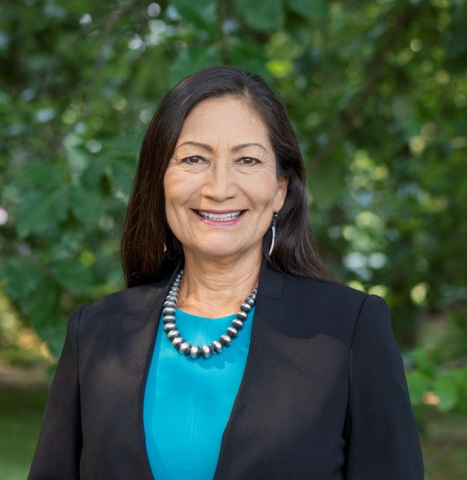As temperatures hover above 90 degrees Fahrenheit, Secretary of the Interior Deb Haaland (Laguna Pueblo) is expected to travel to Riverside, California this week to highlight how federal dollars are expanding access to clean drinking water and protecting communities from the impacts of the climate crisis, including extreme weather.

President Biden’s Investing in America agenda represents the largest investment in climate resilience in the nation’s history: $16.5 billion dedicated to making communities more resilient to climate change and other threats.
Through the Bipartisan Infrastructure Law, the Bureau of Reclamation is investing a total of $8.3 billion over five years, including for water purification and reuse, water storage and conveyance, desalination and dam safety.
Just last week, The Department of Interior announced a $120 million investment in tribal communities to mitigate the effects of climate change. Tribes can apply for the funding to either plan for or adapt to climate change related threats such as drought, wildfire, and coastal erosion.
Haaland’s trip to Riverside, California will coincide with another purpose: two stops on the Interior's “Road to Healing” tour, to hear from boarding school survivors and their descendants.
The Secretary and Assistant Secretary for Indian Affairs will travel to Riverside, California on Friday, August 4 and Rohnert Park, California on Sunday, August 6, 2023.
More Stories Like This
Trump signs law that revokes some limits on drilling in Alaska’s National Petroleum ReserveSouthern Sierra Miwuk Nation Gets 900-Acres ofLand Back
Chilkat Indian Village Tells New Palmer Mine Owners They Are “Not Welcome” in Chilkat Valley
Tribes, Coastal Group Ask Army Corps to Revoke Permit for Texas Export Terminal
Michigan Tribes Tell Supreme Court: Don’t Bail Out Enbridge
Help us defend tribal sovereignty.
At Native News Online, our mission is rooted in telling the stories that strengthen sovereignty and uplift Indigenous voices — not just at year’s end, but every single day.
Because of your generosity last year, we were able to keep our reporters on the ground in tribal communities, at national gatherings and in the halls of Congress — covering the issues that matter most to Indian Country: sovereignty, culture, education, health and economic opportunity.
That support sustained us through a tough year in 2025. Now, as we look to the year ahead, we need your help right now to ensure warrior journalism remains strong — reporting that defends tribal sovereignty, amplifies Native truth, and holds power accountable.
 The stakes couldn't be higher. Your support keeps Native voices heard, Native stories told and Native sovereignty defended.
The stakes couldn't be higher. Your support keeps Native voices heard, Native stories told and Native sovereignty defended.
Stand with Warrior Journalism today.
Levi Rickert (Potawatomi), Editor & Publisher

